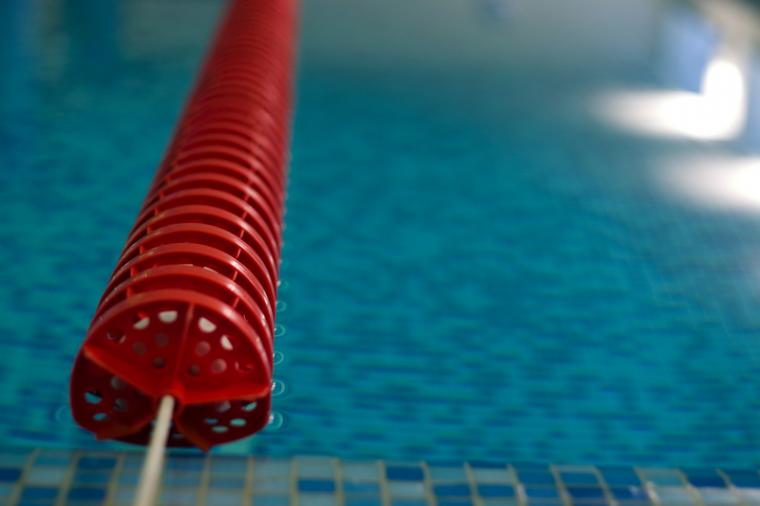

First, there was a chlorine shortage. Now, it’s a lifeguard shortage and it’s impacting local swim meets and leagues – the feeder systems for high school and college swimmers (and ultimately, elite programs).
Last summer, lifeguarding opportunities last summer dried up when the coronavirus pandemic either closed or limited capacity at outdoor pools from coast to coast. Now, as pools reopen with expanded cleaning protocols and enhanced safety precautions in place, many municipal operators are struggling to fill their lifeguard chairs.
“We lost half of our staff, because when you don’t work them the previous summer, they have to find other jobs and they don’t come back,” Grant Bourguet, program manager at Pima County Natural Resources, Parks and Recreation in Arizona told Tucson.com. “While many places were closed in 2020, many places were open, so people naturally find other jobs.”
According to Tucson.com, Pima County employed about 150 lifeguards in 2019 but has only 120 or so this year. Shortages in Hellertown, Pa.,Belvidere, Ill., and countless other communities delayed the opening of local pool seasons, and beaches in Minnesota and Maine are unsupervised.
In the Denver metropolitan area, a lifeguard shortage has resulted in long lines and limited hours at community pools. To recruit more guards, city officials in Aurora, Colo., have tried to make a job that requires long hours in the sun and considerably more responsibility than, say, flipping burgers more appealing financially. “Our lifeguards are starting at $14 an hour, which is about a $1.50 to $2 jump from what they were starting [at] a couple of months ago,” Alek Raymond, the city’s aquatics supervisor, told KDVR.com.“We’re also working on an incentive program that gives our guard[s] a bonus at the end of the summer for how many shifts they worked up to $600.”
Similarly, officials in Henderson, Ky., raised the hourly pay for lifeguards from $8.50 to $10 and lowered the minimum age requirement from 16 to 15. But pay isn’t always the biggest complaint today’s lifeguards have about the job; it’s the patrons.
“It can be very difficult to deal with people. That’s the hardest part,” 18-year-old Jacob Steffen, who has worked at pools in the Wichita, Kan., area for two years, told the Leavenworth Times. “Last summer we had a very weird schedule due to the coronavirus, so we were open for two hours at a time and then closed for an hour. So I had to deal with a lot of very angry people, because you have to kick them out of the pool.”
Nationwide lifeguard shortages are nothing new; the problem simply appears to be exacerbated this year, when demand is high among users quarantined from the pool for a year. Compounding the issue is the fact that many lifeguard training sessions and certification courses (some essential parts of which must be held in person) were put on hold in 2020 because of the pandemic, leading to a dearth of qualified applicants in 2021.
“It’s been a snowball effect,” B.J. Fisher, director of health and safety at the American Lifeguard Association, told The Boston Globe in early June. “We lost an entire year.”
How might all of this impact swim leagues and swim meets? With the lack of lifeguards already limiting public operation hours or even keeping pools closed, the likelihood that operators will have enough lifeguards to work competitive events could be slim — especially since many lifeguards already might be participating in those events themselves.
The lifeguard shortage in the Tri-Cities area of Washington (which includes Kennewick, Pasco and Richland) has led to the cancellation of swim teams and summer swim leagues this year. Meanwhile, swim team practices and swimming lessons have been delayed at Bancroft Pool at Callahan Park in Bradford, Pa. Don’t be surprised if similar stories surface this summer in other communities.
AthleticBusiness.com reports that city officials in Cicero, N.Y., “are trying to fill staffing gaps by appealing to older Millennials and Gen Xers, as well as those who have jobs with summers off, like teachers. In some areas, parks and recs officials are even turning to retirees with lifeguard experience as a possible resource.”
In Milwaukee County, Wis. officials had secured just one-quarter of the lifeguards needed to open all pools and staff all beaches, as of June 7. Sheldon Wasserman, a county supervisor and chair of the Parks Energy and Environment Committee, went so far as to call the crisis a “life and death matter.” Seeking a potential solution, he recently proposed a partnership between area schools and the county to teach swimming and lifeguarding.
“We have to teach swim lessons for the individual to learn how to swim, but we also need to teach lifeguarding so kids can get jobs and so that people can be safe,” Wasserman told TMJ4.com.
Lifeguarding recruiting efforts will no doubt push further into the summer and beyond, with the goal of avoiding yet another shortage next summer.
“It’s the best job you’ll ever have, but nobody knows it until they’ve done it,” Cindi Machado, recreation director for the Cape Cod town of Barnstable in Massachusetts, told The Boston Globe. “I grew up as a lifeguard. It is the best job. It’s where I met my husband, how’s that?”

